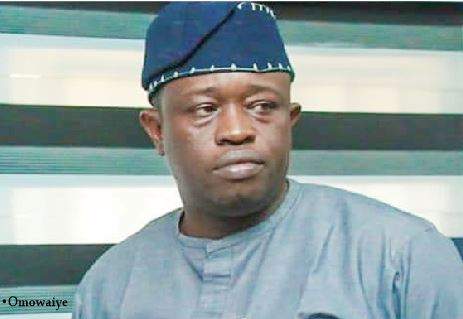
After serving as the Commissioner for Works and Transportation in the administration of former Osun State Governor, Adegboyega Oyetola, Mr. Remi Omowaiye shifted his focus back to business, utilizing his professional background in Electrical Engineering and international training. Despite his reintegration into the private sector, his dedication to politics remains evident in his strategic involvement with the All Progressives Congress.
In the realm of Osun APC, plans for party reorganization are underway. The leadership, spearheaded by Adegboyega Oyetola and other key figures, established a committee led by Prof Isaac Adewole to facilitate the restructuring process. Following the committee’s report submission, the formation of another committee, headed by former Speaker of the State House of Assembly, Timothy Owoeye, has been initiated to craft a white paper. These efforts signify a pivotal phase in the party’s agenda to broaden participation and instigate reconciliatory measures at all levels, positioning itself for the 2026 leadership challenge in the state.
Reflecting on Governor Ademola Adeleke’s one year in office at the helm of the Peoples Democratic Party, Mr. Omowaiye expressed a starkly critical view. With an emphasis on practical evidence rather than political bias, he lamented the perceived failure of Adeleke’s administration to fulfill its promises and effectively manage the state’s resources. Mr. Omowaiye highlighted shortcomings in areas such as security, financial management, and provision of essential services, condemning the administration’s approach and its impact on the populace.
He drew attention to the substantial allocation received by Osun, emphasizing the apparent mismanagement of funds and the unfulfilled commitment to address salary arrears and provide essential support to citizens. Pointing out discrepancies between neighboring states’ approaches and Osun’s underwhelming efforts, Mr. Omowaiye articulated concerns about the administration’s utilization of resources and its responsiveness to critical issues such as pensioners’ welfare.
Furthermore, Mr. Omowaiye compared the achievements of the previous administration, under Adegboyega Oyetola, with those of the current leadership. He underscored Oyetola’s track record of financial prudence and effective governance, noting significant accomplishments despite inheriting a financially strained state. In contrast, he perceived Adeleke’s administration as lacking in tangible progress, citing examples of unfulfilled infrastructure promises and inadequate resource management.
In recounting the achievements during Oyetola’s tenure, Mr. Omowaiye highlighted significant strides in infrastructure development, financial reforms, and healthcare improvements. He contrasted these accomplishments with what he deemed as the current administration’s failure to effectively address critical infrastructure challenges and maintain crucial public amenities, asserting a noticeable regression in the state’s overall condition.
This comprehensive analysis of Governor Adeleke’s performance intertwines objective assessments and personal insights, shedding light on the contrasting governance styles between past and present leadership, ultimately raising pertinent questions about the state’s governance trajectory.
By boldly bridging the realms of politics and governance with factual observations and astute comparisons, Mr. Omowaiye’s forthright evaluation offers critical reflections on Osun State’s current trajectory, resonating with a diverse readership seeking insightful commentary on Nigerian politics and governance.
A Critical Analysis of the First 100 Days of Adeleke’s Administration in Osun State
In the wake of the first 100 days of the Adeleke administration in Osun State, a critical evaluation is essential to ascertain the trajectory of governance in the state. At the onset, concerns were raised regarding the government’s apparent lack of a comprehensive plan, warranting a committee formation post-ascension to power. This raised questions concerning the administration’s seriousness in addressing the challenges facing the state.
One of the notable points of contention is the allocation of funds, particularly the utilization of over N50 billion and the subsequent project prioritization. The decision to allocate substantial resources to tarring a less than a one-kilometer road in Okinni, while celebrating what should have been the responsibility of the local government, has understandably raised eyebrows.
However, it’s equally important to acknowledge significant achievements, such as the completion of the Dagbolu to Alamisi Junction on Osogbo/Kwara boundary road. This accomplishment underscores the administration’s ability to undertake substantial projects.
Nevertheless, questions prevail regarding the pace and efficiency of project completion. The ongoing Osogbo/Ikirun to Ila-Odo road project presents a mixed narrative. While a 17-kilometer road project initiated during the previous administration was continued, concerns have been raised about the feasibility of dualizing 10 kilometers within a mere three months. This skepticism is heightened by the fact that the commissioning of the road occurred within the stipulated timeframe, casting doubts on the authenticity of the entire process.
The practical intricacies of road construction and the complexities involved therein have been emphasized, challenging the narrative of expeditious project delivery. Despite the acknowledgment of the government’s continuity and the progression of projects from the prior administration, the scrutiny remains steadfast.
In light of these developments, it is essential to address the fundamental question of governance efficiency and accountability. The magnitude of allocated resources juxtaposed with the perceived output has evoked widespread skepticism. The need for transparency and efficacy in resource utilization cannot be overstated.
Looking ahead, it is imperative for the Adeleke administration to heed the call for consistent forward momentum. While recognizing the disparities in governance standards, there is a prevailing expectation for the maintenance of a certain level of governance. The importance of adhering to set standards and avoiding regression cannot be overstressed.
Furthermore, the significance of clear communication and coordination within the government cannot be undermined. Recent incidents, such as conflicting statements regarding the purported sack of the Chief Judge and the lack of coordination, have contributed to growing concerns over the administration’s functionality.
In conclusion, the first 100 days of Adeleke’s administration in Osun State have sparked a critical discourse on governance and accountability. As the administration navigates its course, the imperative for efficient resource allocation, project delivery, and coherent governance practices remains paramount. The future trajectory of the administration will undoubtedly be shaped by its ability to address these concerns and demonstrate sincere commitment to the welfare of the state and its people.



